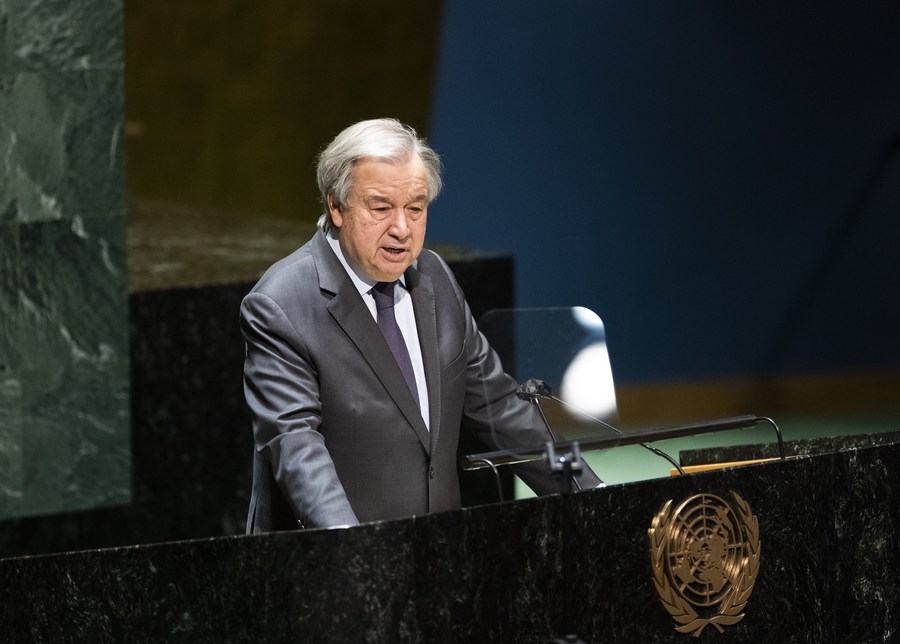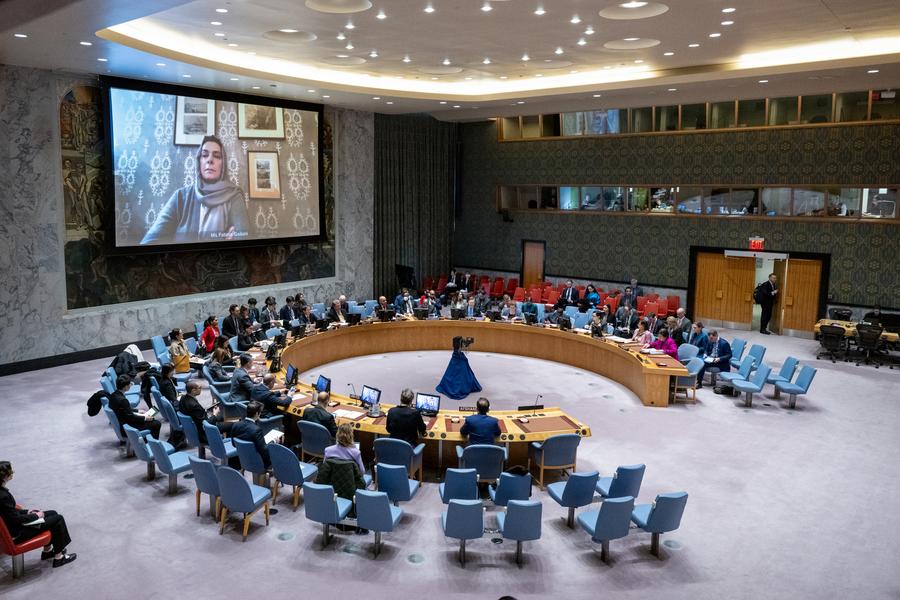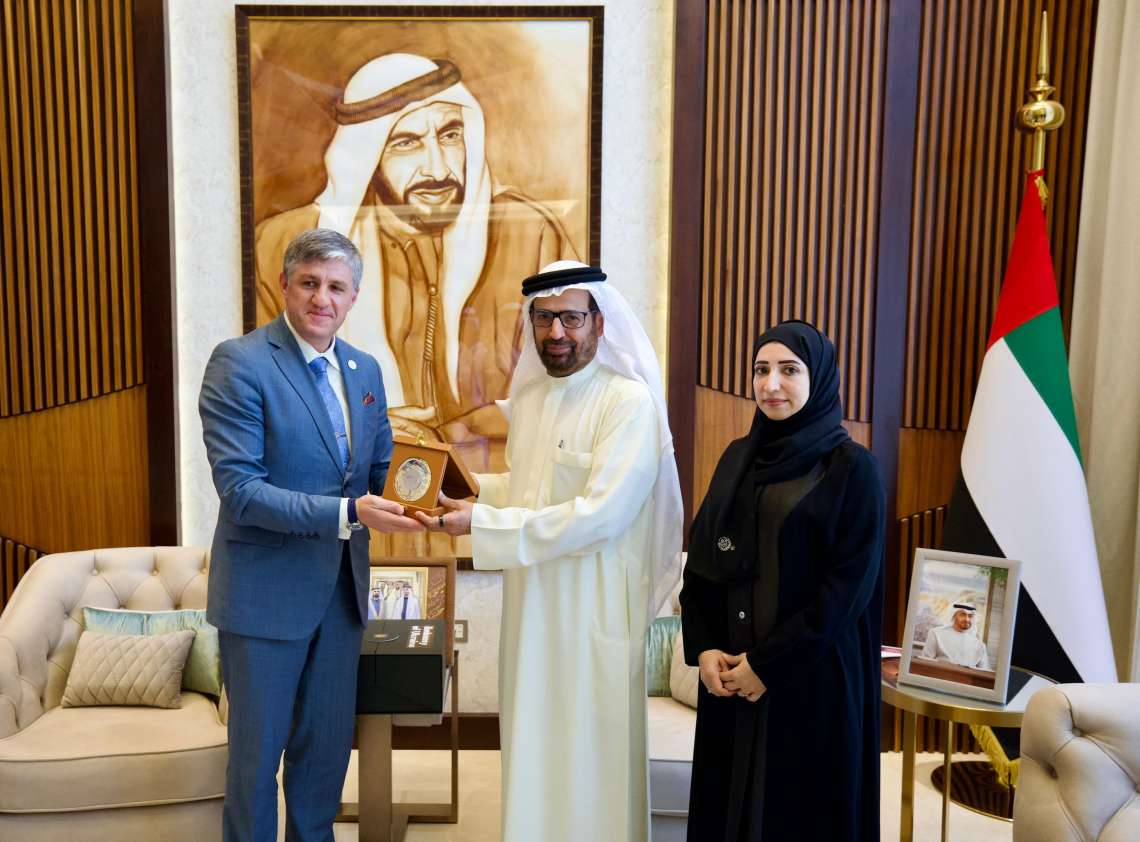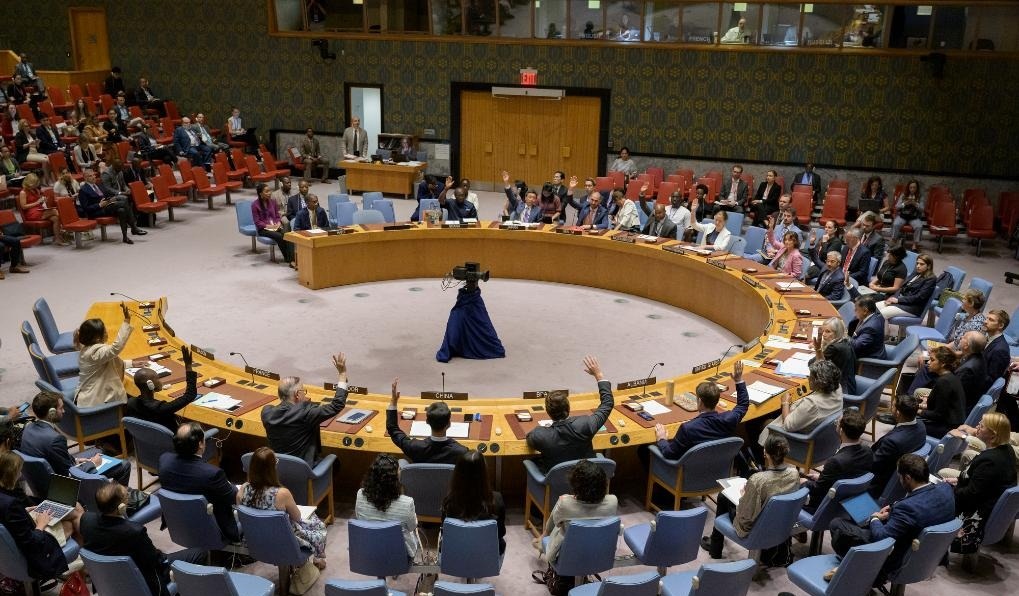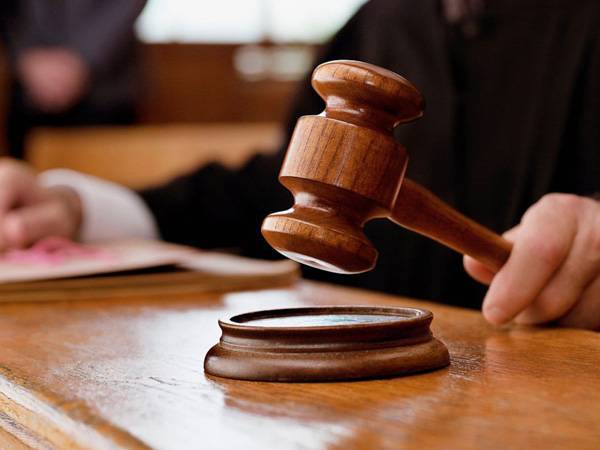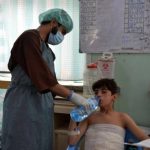For the first time in years, President Joe Biden will be the only leader from the five powerful veto-wielding nations on the U.N. Security Council attending in person….reports Asian Lite News
The war in Ukraine and its visiting president take center stage at the United Nations this week, but developing countries will be vying for the spotlight as well as they push for faster action on poverty and inequality at the first full-on meeting of world leaders since the COVID-19 pandemic disrupted travel three years ago.
The annual meeting at the U.N. General Assembly takes place at a polarizing and divisive juncture in history — the most fraught and dangerous since the Cold War, according to many analysts and diplomats.
They point to Russia’s invasion of Ukraine in February 2022, which upended already difficult relations among major powers as well as the ongoing impact of the pandemic, high food prices, the worsening climate emergency, escalating conflicts, and the world’s failure to tackle poverty, hunger and gender inequality.
For developing countries, the top priority is the U.N.’s two-day summit starting Monday aimed at generating action by world leaders to achieve 17 wide-ranging and badly lagging global goals by 2030. In addition to ending extreme poverty and hunger, the goals include ensuring quality secondary education for all children, achieving gender equality and taking urgent action to combat climate change. At current rates, not a single one will be achieved.
“We find ourselves at a critical juncture in human history,” former Liberian president and Nobel peace laureate Ellen Johnson Sirleaf said last week.
When the annual high-level meeting of the 193-member General Assembly begins Tuesday, presidents, prime ministers and monarchs from 145 countries are scheduled to speak, a very high number that reflects the multitude of global crises and lack of action.
For the first time in years, President Joe Biden will be the only leader from the five powerful veto-wielding nations on the U.N. Security Council attending in person. This has sparked private grumbling from developing-country diplomats that key global players won’t be listening to their demands, which need billions of dollars to implement.
Chinese President Xi Jinping attended last month’s Johannesburg summit of the BRICS bloc of developing economies — Brazil, Russia, India, China and South Africa. Russian President Vladimir Putin, sought by the International Criminal Court for alleged war crimes in Ukraine, didn’t go to South Africa and isn’t coming to New York. French President Emmanuel Macron, who attended last year, opted out to host Britain’s King Charles in Paris next week, and Rishi Sunak will be the first British prime minister to skip the General Assembly in a decade, officially due to a busy schedule.
U.N. Secretary-General Antonio Guterres told reporters last week that he didn’t think a leader’s presence “is more relevant or less relevant.” What counts, he said, is whether their government is prepared to make commitments on the U.N. goals and many other issues during the week. “So this is not a vanity fair,” he said.
Richard Gowan, U.N. director of the International Crisis Group, said that after the recent meeting in New Delhi of the Group of 20 major economic powers, “for some European leaders right now there is not a lot of political capital in going to big summits, and you need to be seen at home a lot more.”
He called the situation at the United Nations “bleak,” saying “it feels like we are a lot closer to a cliff edge in U.N. diplomacy” than a year ago. “Major power tensions are having a more and more serious effect on the organization,” he said.
With the four leaders sending lower-ranking ministers, Ukraine President Volodymyr Zelenskyy is certain to grab even more attention, with the war in its 19th month and no end in sight. Biden, who speaks Tuesday, will also be closely watched for U.S. views on Ukraine, China and Russia.
Zelenskyy also addresses the assembly Tuesday and will attend a Security Council meeting Wednesday on Ukraine focusing on the principles of the U.N. Charter, which require every country to respect others’ sovereignty and territorial integrity. The meeting could create the unique spectacle of placing Zelenskyy and Russian Foreign Minister Sergey Lavrov in the same room.
Underlying the entire week is the prospect that the very reason for the United Nations’ existence — to bring countries together to foster peace and security — is becoming more difficult because of divisions between the West, Russia and China, and the rise of regional and like-minded groups that are creating a multipolar world.
Guterres, who will deliver his state-of-the-world address at Tuesday’s opening of what is called the General Debate, says he will tell world leaders that now is not a time for “posturing or positioning,” or for “indifference or indecision.”
“This is a time to come together for real, practical solutions,” the U.N. chief said. “It is time for compromise for a better tomorrow.”
Guterres, who says the Ukraine war has aggravated divisions, said the current shift to a fragmented “multipolar world” isn’t going to solve the planet’s myriad issues.

